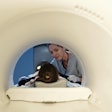
Like other medical specialists, radiologists receive payments from pharmaceutical and technology firms for things like consulting, travel expenses, or royalties. But the distribution varies across subspecialties, with neuroradiologists receiving the highest mean payments, according to a study published online June 26 in Academic Radiology.
It's unclear whether industry payments affect practice patterns, wrote the researchers from the University of British Columbia in Vancouver. For their study, Drs. Marc Jutras and Faisal Khosa used data from the U.S. Centers for Medicare and Medicaid Services (CMS) 2015 Open Payments database, which the agency uses to track all payments made to physicians by manufacturers and medical suppliers.
Payments made to physicians by pharmaceutical companies, device manufacturers, and group purchasing organizations are monitored by the Physician Payments Sunshine Act, passed in 2010 as part of the Affordable Care Act. It requires manufacturers and medical suppliers to submit to CMS a record of all payments of more than $10 made to physicians; CMS updates its database each year and makes the results available online, so the public can access the information.
Jutras and Khosa examined compensation received by general U.S. radiologists, as well as those in five subspecialties: body imaging, neuroradiology, pediatric radiology, nuclear radiology and radiological physics, and vascular and interventional radiology.
In 2015, about 33% of all U.S. radiologists received some sort of industry payment, the researchers found. Pharmaceutical and device manufacturing companies paid a total of $43.7 million to 12,537 radiologists that year; the overall mean payment was $667. General radiologists received the highest number of total payments, the majority of which were less than $1,000, while neuroradiologists received the highest mean and median payments of any of the subspecialties.
| Industry payments to radiologists in 2015 | |||
| Radiology subspecialty | Mean payment | Median payment | Total payments |
| Neuroradiology | $2,397.86 | $80.29 | $9.8 million |
| Vascular and interventional radiology | $681.05 | $35 | $8.2 million |
| General radiology | $525.90 | $29.46 | $24.9 million |
| Body imaging | $417.93 | $23.47 | $461,390 |
| Nuclear radiology and radiological physics | $338.40 | $27.69 | $147,205 |
| Pediatric radiology | $306.96 | $45.98 | $114,188 |
| All radiology | $666.88 | $31.85 | $43.7 million |
Although previous research suggests that radiologists receive less compensation from industry sources than physicians from other specialties, they are compensated -- and the levels vary by subspecialty, Jutras and Khosa concluded.
"Commercial entities make substantial payments to radiologists, with a significant variation in payments made to different radiology specialties," the authors wrote. "While the largest number of total payments was made to general radiologists, the highest median payments were made to neuroradiologists. ... The impact of these payments on practice patterns remains to be elucidated."




















